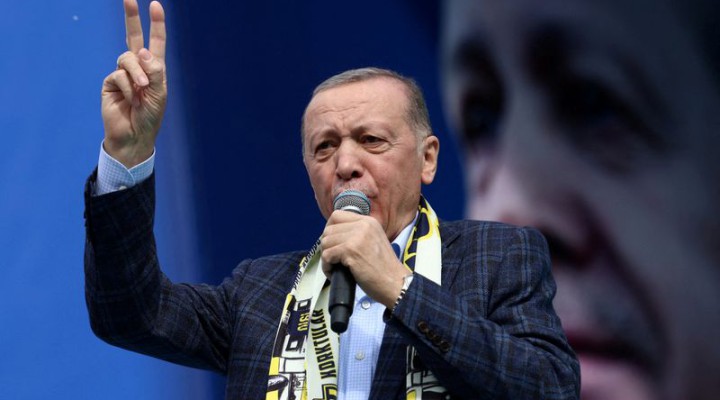High stakes at the Turkish elections

It’s a matter of global concern whether voters opt for ‘stability’ or ‘change’
The first round of the Turkish elections gave a slight edge to ‘stability’ — embodied in President Recep Tayyip Erdoğan and his allies — over ‘change’ — as represented by the opposition coalition led by Kemal Kılıçdaroğlu. But the margin was narrow, and no knock-out blow was dealt.
Although Erdoğan’s alliance gained a 321-seat majority in the 600-seat parliament, he fell less than one point short of a first-round win in the presidential vote. But he demonstrated to his many enemies that he is a formidable politician. Having fought ten national elections in the past 20 years and won them all, he used all means at his disposal to rally voters to his side, and is better placed than his rival to win the second round.
The opposition’s narrow first-round defeat in the presidential polls can be attributed to a number of factors.
These include Kılıçdaroğlu’s insistence on being the opposition presidential candidate, despite his advanced age (74) and failure to win a single contest against Erdoğan’s AK Party throughout his political career. He rejected calls to stand down in favour of the 53-year-old Ekrem İmamoğlu, who defeated the AKP in the Istanbul mayoral elections and appealed to younger voters.
Kılıçdaroğlu made another mistake by publicising his Alevi and Arab ancestral roots. That was meant to affirm his commitment to inclusiveness and rejection of sectarian and ethnic divisions. But given the nature of ascendant Turkish nationalism, many Turkish voters are anti-Arab for historical reasons and strongly identify as Sunnis. His stance was well-intentioned, but an electoral liability.
It also did not help him that the US and most Western countries came out so blatantly against Erdoğan, due to his independence from them, his refusal to obey their dictates, and his strong ties with Russia and Iran.
None of this makes Erdoğan a saint. His collusion in devastating US-led wars on Syria and Libya will be hard to ever forgive. His support for political Islam and related oppositionists earned him the enmity of most Arab countries before he backtracked in recent years and tried to revert to the policy of ‘zero problems’ with neighbours. And he went way over the top in normalising relations with the Israeli occupier state.
There are two key figures who could — in addition to the state of the economy — determine the outcome of the presidential runoffs.
First, the losing candidate in the first round, Sinan Oğan of the nationalist ATA alliance, obtained just above 5% of the vote.
Second, Syrian President Bashar al-Asad. He holds the key to the return of Syrian refugees — a significant election issue — and to providing a ladder for Türkiye to climb down from its military intervention in Syria.
Russia and Iran seem to be planning a deal between Asad and Erdoğan before the second round, under which they meet at a summit in Moscow.
Erdoğan would commit to withdrawing all Turkish forces from Syria, in exchange for Asad agreeing to facilitate the repatriation of four million refugees within a specific timeframe, while reviving the 1998 Adana border security agreement.
Russia and Iran do not trust the Turkish opposition and fear it will be beholden to the US. They would rather see Erdoğan re-elected, especially in light of the escalation of the Ukraine war. They think an Asad-Erdoğan summit would help that and are keen for one to be held as soon as possible. Preparatory meetings have been convened between political, security, and military officials from the four countries to pave the way for what would be a historic encounter.
The Turkish elections demonstrated the resilience of the country’s democratic culture, with over 93% of eligible voters taking part. But the stakes are as high as the turnout. Will either side accept defeat if beaten, or take to the streets in protest, or worse? Could external players try to foment chaos to give the army a pretext to intervene and seize power, as it has often done?
We will soon find out. Türkiye is a pivotal player in the region and the world, and a gateway between East and West. There are forces that do not want it to be safe and stable at a time when the world is facing the prospect of a third global war.
https://www.raialyoum.com/high-stakes-at-the-turkish-elections/
 TheAltWorld
TheAltWorld 
0 thoughts on “High stakes at the Turkish elections”